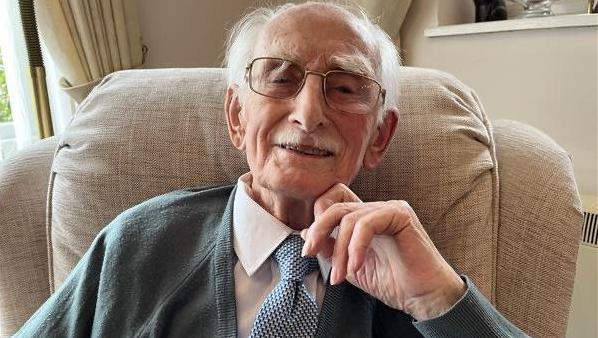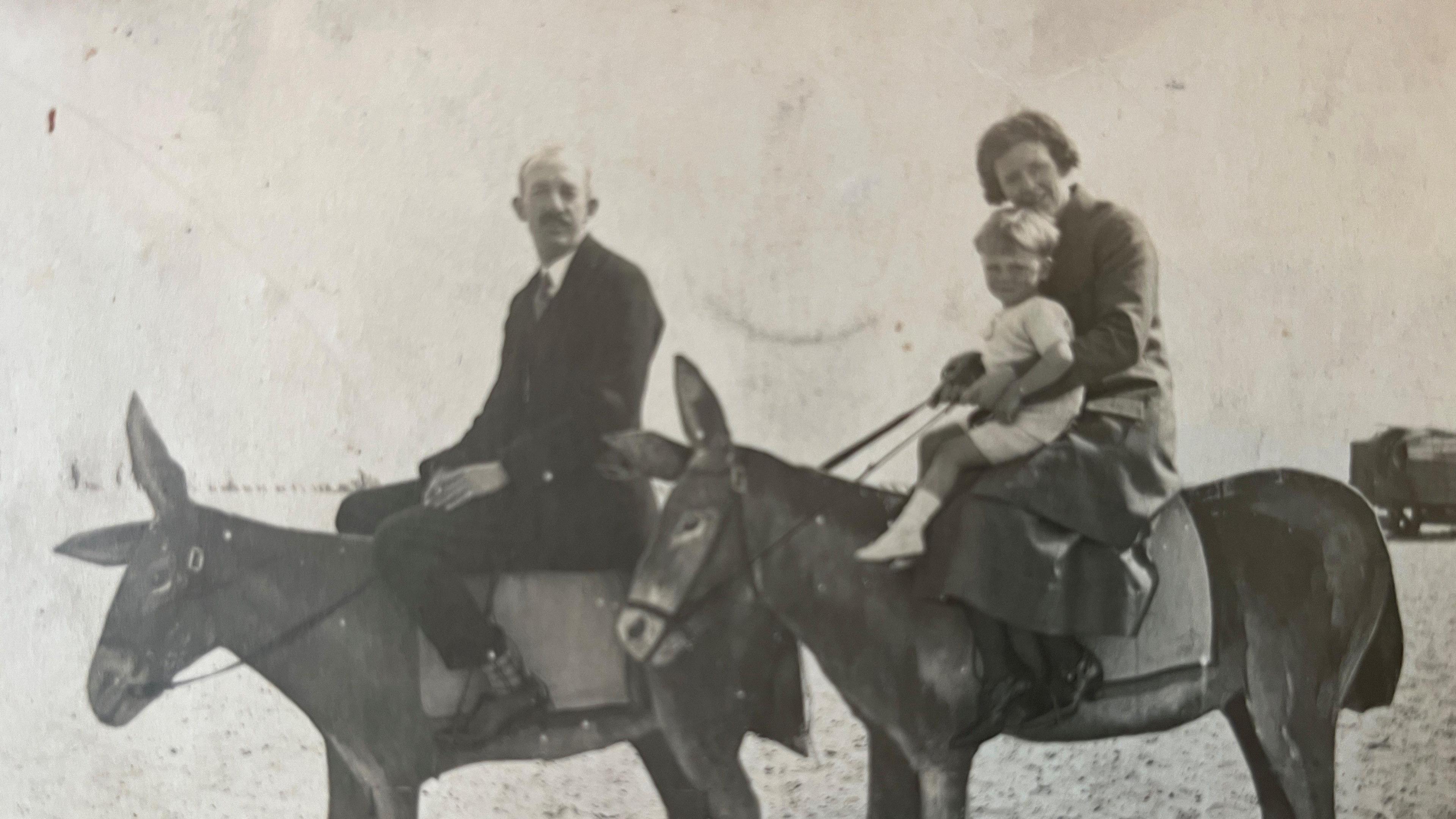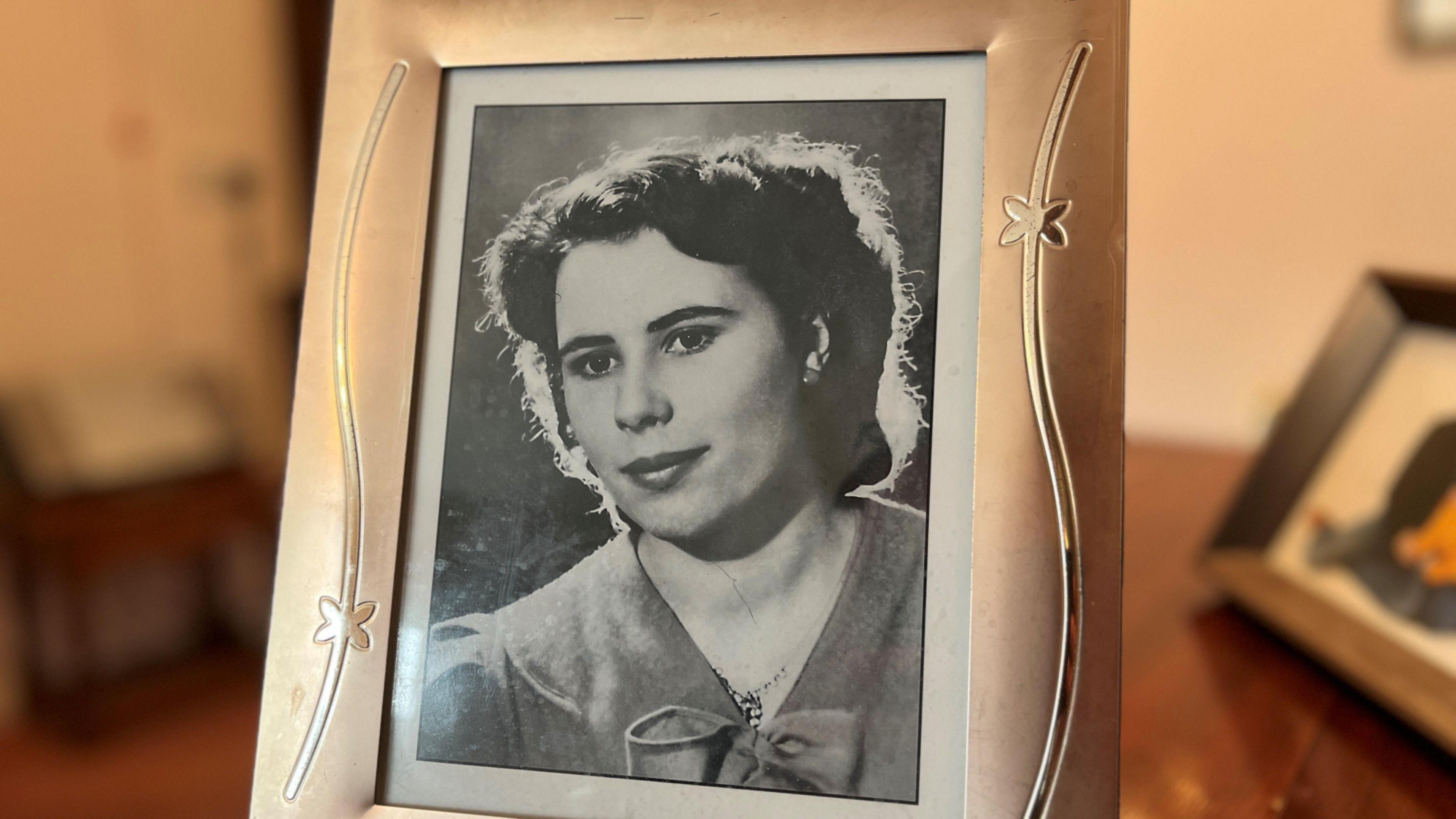WW2 veteran, 102, says: 'I'm the luckiest man ever'

War veteran Malcolm Howard was captured in 1942
- Published
A 102-year-old war veteran who survived two and a half years as a prisoner of war said he was the luckiest man that ever lived.
Malcolm Howard, from Norwich, was captured by the Germans in 1942 while taking part in Operation Torch - the British and American invasion of North Africa. He was just 19 years old.
While serving with the Bedfordshire and Hertfordshire Regiment, he landed close to Algiers in what was then the biggest amphibious operation ever seen in World War Two. According to Mr Howard, it was also the "worst-managed operation ever seen".
He said: "We ended up on this bare hill with no cover, and we were standing there like lemons - the Germans opened fire and all hell broke loose."

Three-year-old Malcolm Howard on Southend beach in 1926, with his parents Harry and Ellen
'I joined the Army as soon as I could'
Mr Howard spent the first few years of his life in London, where his father ran a barbershop. His mother died of cancer in 1929 when he was just six years old.
"They tried to keep it from me, they told me she'd gone away," he recalled.
"I didn't know any more than that for some time. It hit my father hard, and almost overnight, he just fell apart.
"He sold up, got rid of everything. I grew up very fast because I knew my father was dying. I could see it."
Mr Howard's father was badly gassed in World War One, and his legs and stomach had shrapnel in them, but he thought his father's broken heart was the reason he lost his will to live some five years after his mother's death.
Aged 11, Mr Howard then went to live in Great Yarmouth, Norfolk, where he was brought up by his aunt and grandmother.
"My grandmother was tyrannical," he said.
"It was a very unhappy time, which is why I joined the Army as soon as I could get out of there."
'It was where they kept the animals'
He signed up with the Bedfordshire and Hertfordshire Regiment, and after training in Suffolk and Scotland, he found himself in the Allied landings of North Africa.
Codenamed Operation Torch, nearly 600 British troops lost their lives, and Mr Howard was captured after marching into Tunisia.
He said: "The weirdest thing happened. The German officer ordered us to lay down on the grass. Then they covered us with blankets.
"I thought 'I don't like the sound of this one bit'. Then, in perfect English, he said to us, 'Sorry chaps, I'm handing you over to the Italians'."
The prisoners were then marched to the tip of Tunisia to their first prison.
"It was where they used to keep animals," he continued.
"It was a zoo, and it smelled like it.
"The food in the Italian prison camps was abominable - breakfast was a bread roll and a sliver of cheese, which would last you to your evening meal of pumpkin soup.
"We used to count the pieces of pumpkin, and there would be four or five if you were lucky. It was basically water."
'We marched for 900 miles'
Towards the end of the war, Mr Howard found himself in another prison camp on the Hungarian border, which was accidentally destroyed in a US bombing raid of nearby factories, he said.
He was then marched to what he was told would be another prison camp 40 miles away, but there was no other prison camp - the march went on for 900 miles right across Austria.
"We just kept going and going - to nowhere really," he told the BBC.
"We were in a hell of a state, exhausted and starving. We were found by a US army unit in Bavaria, and our German guards fled."
Mr Howard was flown to a military hospital - his body riddled with fleas and lice.
"VE Day passed me by really, I was recuperating in hospital," he added.
"I pretty much came through the war without a scratch."

Malcolm's wife, Gwen, died in 2004
His wife, Gwen, died in 2004, but at 102, Mr Howard still lives independently, doing his own washing and cooking, and pressing his white shirts, which he wears every day with a jacket and tie.
He said he had lived a full life tinged with deep sadness, but he counted himself to be "the luckiest man that ever lived".
Listen: WW2 veteran is ‘luckiest person alive’